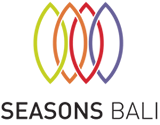What do you do when your phone addiction is worse than the substances you’re trying to quit?
Let’s face it — we’ve all been there. We’ve all found ourselves mindlessly scrolling through Instagram at 2am, comparing our chaotic lives to those of others. For women in recovery, delving into this digital maze can be particularly dangerous.
The average person touches their phone 96 times a day. That’s one every 10 minutes of waking time. For women wrestling with addiction or in the early stages of recovery, social media can become yet another way to check out, serving as a kind of escape that is nearly as toxic as the substances they are trying to avoid.
Why Women Face Different Digital Challenges in Recovery
Here’s something that few people discuss: women experience social media differently from men. Research is clear that women are more likely to use social platforms for emotional connection and validation. We’re comparing ourselves more, and we’re more sensitive to social rejection on the internet.
During addiction recovery, these two tendencies can intensify, creating a challenging environment. When you’re already feeling vulnerable and isolated and questioning your worth, social media can magnify every insecurity. Is there a sponsored post about wine? Triggering.
Are you looking at his party pictures from last weekend? These images serve as a reminder of what you feel you’re missing.
This comparison trap is real. Though men might scroll past a post about someone’s shiny new promotion, women are more prone to falling into thoughts like “I shouldn’t be doing better by now” or “Everyone else has it all figured out except me.”
The Hidden Dangers of Digital Dependency
Social media dependency is marked by alarming parallels with drug addiction. Both activate dopamine in the reward centre of the brain. Both result in tolerance — it takes more and more to give you the same high.
And both can experience withdrawal symptoms if removed. This neurological similarity between the two types of addiction is supported by research from the National Institute on Drug Abuse.
For women involved in female rehabilitation programmes, recognising these parallels is crucial. While you may have successfully abstained from drugs or alcohol, spending six hours a day scrolling through feeds might not align with your recovery goals.
Signs Your Social Media Use Is Problematic:
- Checking your phone first thing in the morning and last thing at night
- Feeling anxious when you can’t access social media
- Comparing your recovery journey to others online
- Using social platforms to avoid difficult emotions
- Staying up late, scrolling instead of sleeping.
- Feeling worse about yourself after using social media
Sound familiar? You’re definitely not alone.
Why Gender-Specific Addiction Recovery Matters Online Too
Women’s addiction treatment has progressed to acknowledge that we have particular hurdles to overcome—our trauma histories, societal pressures, relational dynamics, and co-occurring mental health disorders. The same surely holds for our digital lives.
Women are also more likely to experience online harassment, cyberbullying, and image-based abuse. We are inundated with images of impossible beauty and life expectations. This digital pressure can be particularly difficult to handle during recovery, when self-esteem is already fragile.
Conventional treatment for addiction may tell you to “just put your phone down”, which isn’t realistic in today’s society. Instead, gender-specific addiction recovery strategies recognise that we need plans and tactics – yes, they should be as simple as brunch in the park – to address our realities, not oppose them.
The Triggers on Social Media That Hinder Recovery
Recovery is about creating a life worth living, not just avoiding substances. Social media can be a terrain of triggers that make this more complicated than necessary.
- Party Culture Glorification: The temptation of endless “wine o’clock” posts and champagne stories makes it much easier to drink, which can make sobriety seem undesirable.
- Perfectionism Pressure: Curated feeds are giving the impression that your messy, real recovery isn’t good enough.
- FOMO Overload: Watching friends at events you’re skipping leads to loneliness and anxiety (learn more tips on staying sober around others).
- Numbing out digitally: Clicking mindlessly instead of using substances as an emotional escape.
- Sleep Sabotage: Nighttime screen usage can interfere with sleep, elevating the risk of relapse.
These triggers aren’t always obvious. You might convince yourself that you’re “staying connected”, but innocent scrolling could actually hinder your recovery.
How to Set Healthy Digital Boundaries and Stick to them.
Boundary setting is not about turning into a digital hermit. It’s about using technology with purpose instead of letting it own you.
Here are hacks that really work for women in recovery:
Start With Awareness
Keep track of your usage for a week before you change anything. Built-in screen time features are available on most smartphones. You may be surprised to learn that you’re spending an astounding 4–5 hours or more a day on social media without really knowing it!
The Morning Rule
Avoid checking social media during the first hour of the day. Use this time instead to practise some of your own recovery rituals, such as meditation, journaling, and connecting with people in your treatment support system. Unless someone else’s content is truly making you happy, beginning your day with it will likely make you feel reactive instead of proactive.
This morning ritual is critical, especially in the first 30 days of your sobriety; the habits we create early on can set our foundation and babysit us back to health.
Curate Your Feeds Ruthlessly
Unfollow accounts that make you feel worse about yourself or your recovery.
This includes:
- Party lifestyle accounts
- Accounts that glamorise substance use.
- People who trigger comparison or negative feelings
- News accounts that increase anxiety
Instead, follow inspiring recovery accounts, share educational content, or simply breathe and smile.
Create Phone-Free Zones
Create spaces in your home where phones are not allowed – maybe your bedroom or around the dining table. If you’re a therapist, eliminate phone conversations during therapy sessions.
Technology-Assisted Recovery
Not all social media is bad
Social media can be used strategically to aid in recovery:
- Join private recovery support groups.
- Follow therapists that post good content.
- Network with others in similar situations.
- Write down your progress (at home or online; it depends on you).
The 24-Hour Rule
Please wait 24 hours before disclosing any details about your healing journey or issues relating to mental well-being. A lot of times, that which is most pressing to disclose at any given moment becomes something you’d rather not share openly after reflecting on it.
How Professional Treatment Addresses Digital Wellness
Any good women’s rehab programme includes “digital wellness” tracks. At female-focused rehab centres, therapists work with clients to discover how strongly technology links with their overall mental health.
Activities can include:
- Recognising our own trigger patterns for why and how much we use social media,
- Building healthy tech habits. This section discusses building mindful, as opposed to impulsive, use of devices.
- Creating caring communities beyond screens of computers.
We must equally address what drives the high consumption of social media.
The better programmes do not just tell you to uninstall apps; they also help you understand the reasons for your initial attraction to them. In most cases, the mere problematic use of social media turns out to be a symptom of loneliness, anxiety, or trauma that manifests and needs therapeutic treatment.
The Connection Between Real-World Community and Digital Boundaries
This is the illusion of a connection that makes social media so addictive for many. When you’re alone with no one to keep you company, the interactions through the digital can, at times, only be some form of company.
And this is what holistic addiction treatment does for people. Some programmes have group dynamics, peer dynamics, and a whole “smorgasbord” of community-related activities, all meant to get you reconnected with the real world. When your real-life social needs are met, you just don’t pine for online validation as much.
It is, therefore, essential to the treatment of women. It might serve as guidance for another woman going through similar hardships and issues. It would enable one woman to discover strength in another who had experienced hardship and adversity and come out stronger.
Creating a Healthy Digital Life After Recovery
Recovery is not about stopping acting-out behaviours; it is about creating a life worth living. Your relationship with technology should be in support of that vision, not undermining it.
Be mindful of what you really want from your online life. Connection? Information? Entertainment? Creativity? Then, once you are clear about your desires, you will be able to make more conscious decisions around how you are spending your time in front of the screen.
Others need an allocated day per week when they stay away from technology to reset their equation with the gizmo. The bottom line is figuring out what is effective for your individual situation and recovery goals.
Red Flags: When Digital Habits Need Professional Help
In certain cases, social media issues may be merely a symptom of deeper psychological issues, indicating the need for professional assistance. The following indications may mean that you need to reach out for help:
Panic caused by their inability to put up a status on social media:
- Extreme mood swings from crazy comments on the internet
- Using social media to harm themselves (looking at triggering material)
- Complete isolation from all sources except for digital contact is necessary.
- This approach is ineffective without continuous digital stimulation.
- Direct relapse cues associated with the use of social media
There’s quite a bit of hope in therapy for these problems, especially when you’re participating in a more comprehensive treatment plan that respects the overlap between digital wellness itself and recovery.
Moving Forward: Your Digital Recovery Plan
Establishing healthy digital boundaries is not about perfection — it is about progress. Begin with baby steps: leave the phone in another room at night, or take a 24-hour social media break once a week.
Everyone’s journey to recovery is unique, and that’s perfectly acceptable. If you are addressing addiction and problematic social media use, please know that you do not have to navigate this journey alone. By seeking professional treatment, you can gain the tools to cope with all modern recovery has to offer.
Ready to take the next step? Get in touch with Seasons Bali and discover our full-spectrum, women-only programmes. We realise that post-recovery these days comes with digital issues, and we are here to help you heal in all areas.




